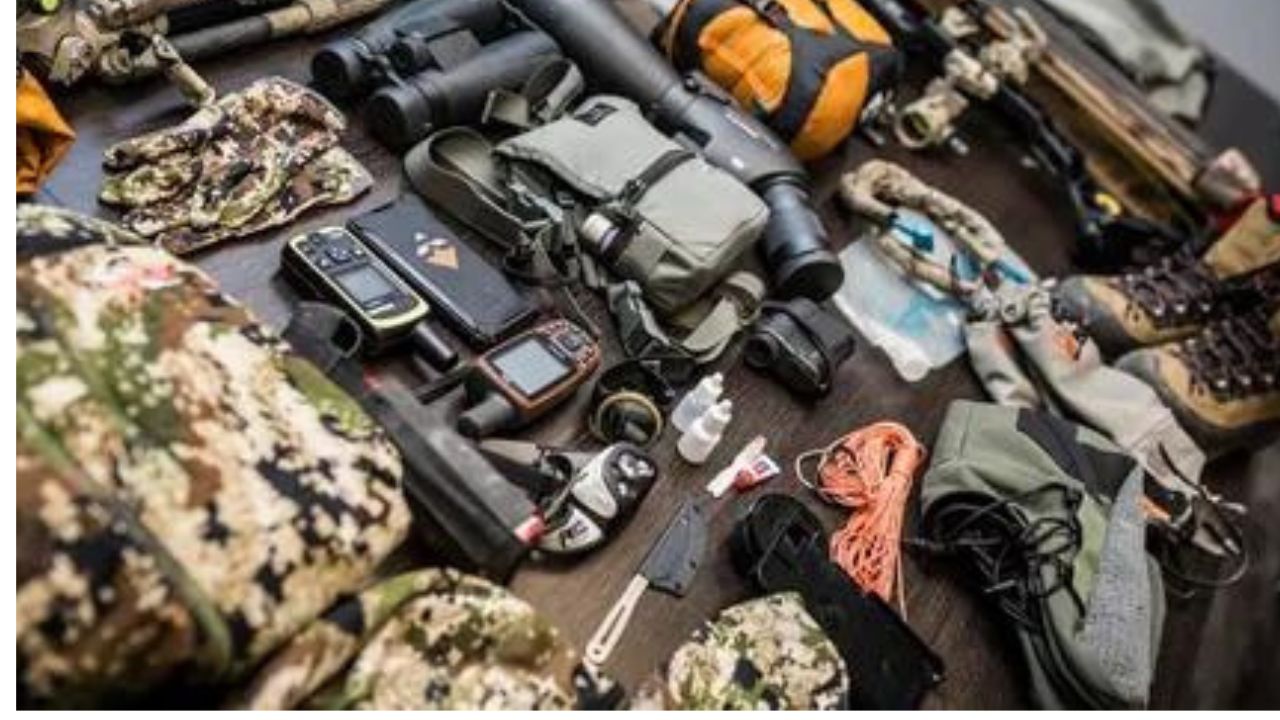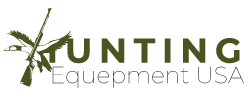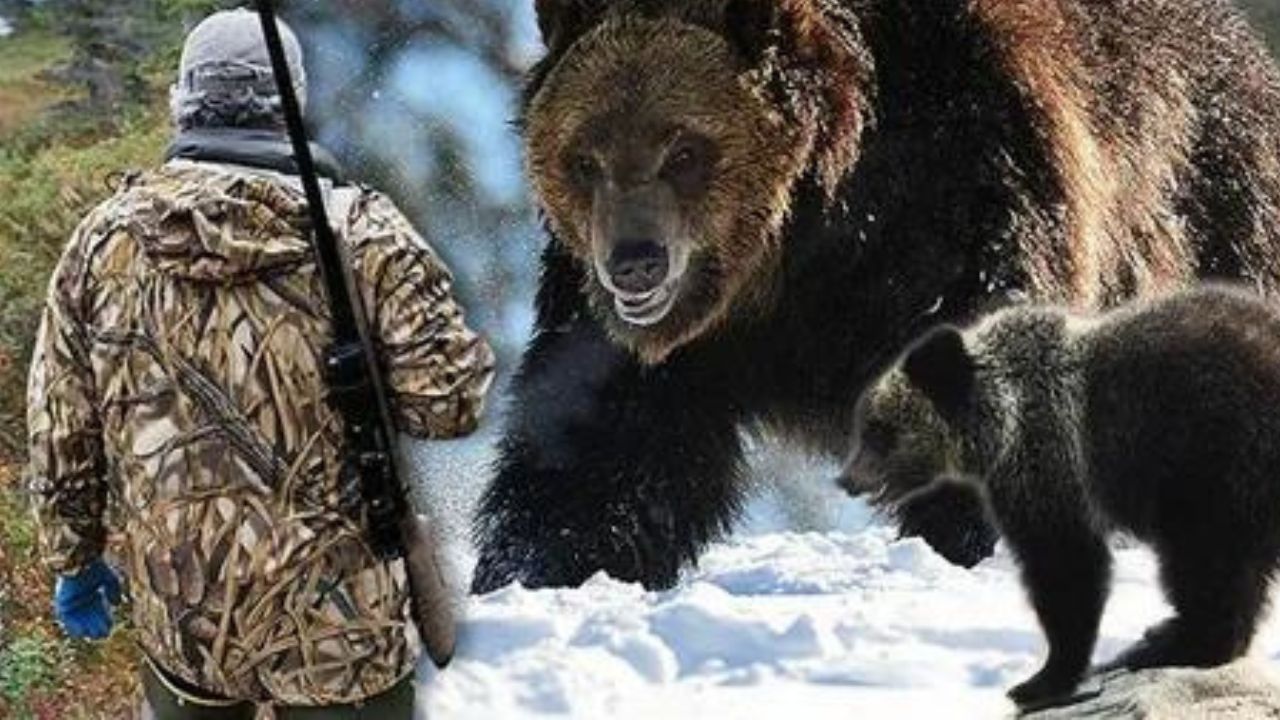Bear hunting season in Washington State typically occurs in the spring and fall. Hunters pursue black bears using various methods, including spot-and-stalk, baiting, and hound hunting. Rules differ from place to place, but in order to guarantee ethical hunting and the preservation of wildlife, hunters must apply for permits and follow certain rules.
Bear Species in Washington
There are black bears and grizzly bears in Washington. Although they are uncommon in Washington, grizzly bears can be found in the Okanogan Highlands, the North Cascades, and a tiny population in the Selkirk Mountains in the northeast.
While black and grizzly bears dominate the landscape, Washington is also home to other bear species, albeit less common. These include brown bears and occasional sightings of polar bears, reflecting the state’s diverse wildlife population.
What is the Nature of a Bear?
The nature of a bear is inherently complex, reflecting its role as a versatile and adaptive creature in the wild. Bears exhibit a wide range of behaviors, from solitary foraging to social interactions during mating and feeding. Because of their omnivorous diet, they may live in a range of habitats, including as dense woodlands and vast meadows.
Despite their formidable size and strength, bears often avoid conflict with humans and prefer to retreat when feeling threatened. However, they can display territorial behavior, especially when defending their young or food sources. Overall, bears exemplify resilience and resourcefulness in their natural habitats.
What Do Bears Hunt the Most?
Bears are opportunistic omnivores, meaning they consume a diverse diet based on seasonal availability. While their primary food sources vary depending on their habitat and time of year, bears typically hunt for vegetation, insects, and small mammals. In regions abundant with berries, fruits, and nuts, such as forests and meadows, bears predominantly forage for plant matter, supplementing their diet with insects like ants and beetles.
During leaner seasons or in areas with fewer plant resources, bears may actively hunt for small mammals like rodents, deer fawns, or even fish, showcasing their adaptability and versatility as apex predators in their ecosystems.
Washington State Regulations on Bear Hunting
Washington State imposes strict regulations on bear hunting to ensure conservation and responsible management. Hunters must obtain specific permits and adhere to quotas set by wildlife authorities.
Hunting seasons are carefully scheduled to coincide with bear behavior and population dynamics, minimizing impacts on reproductive cycles. Additionally, regulations govern hunting methods to promote ethical practices and prevent unnecessary suffering.
These measures aim to maintain healthy bear populations while providing opportunities for sustainable hunting. Continuous monitoring and adaptive management strategies ensure that regulations remain effective in safeguarding both bears and their habitats for future generations.
The Ethics of Bear Hunting
The ethics of bear hunting spark passionate debate, balancing cultural traditions, wildlife management, and animal welfare concerns. Proponents argue that hunting can control bear populations, prevent human-wildlife conflicts, and provide revenue for conservation efforts.
However, opponents criticize it as cruel and unnecessary, advocating for non-lethal methods of population control and emphasizing the intrinsic value of individual animal lives.
Ethical considerations also encompass fair chase principles, ensuring hunters adhere to regulations and prioritize humane practices. Ultimately, navigating the complexities of bear hunting ethics requires careful evaluation of ecological impacts and moral values.
Planning a Bear Hunt
Planning a bear hunt in Washington involves careful consideration of regulations, logistics, and ethical considerations. Hunters must obtain the necessary permits and adhere to specific hunting seasons and quotas set by wildlife authorities.
Choosing appropriate gear, scouting locations and understanding bear behavior are crucial for a successful hunt. Additionally, ethical hunters prioritize fair chase principles, ensuring a humane and respectful approach to harvesting bears. Respect for wildlife and the environment, along with compliance with regulations, are essential aspects of planning a bear hunt in Washington.
Essential Gear for Bear Hunting

Having the appropriate equipment is essential for a successful and safe bear hunt. We offer a thorough introduction to the profession’s equipment, including guns, clothes, and accessories.
Bear Hunting Supplies Recommended By Our Expert Team
- A sleeping bag.
- Pillow.
- Towels.
- Toiletries.
- Scent-free soap.
- Head net & bug spray.
- Two small coolers or 1 large cooler for meat and hide.
- Camera flashlight with extra batteries.
Popular Bear Hunting Areas in Washington
Washington State boasts several popular bear hunting areas, each offering unique landscapes and hunting experiences. Before starting a bear hunting season in Washington State, it is necessary to know where bears are bear found most.
The Cascade Range, with its dense forests and rugged terrain, provides prime habitat for both black bears and occasional grizzly sightings.
The Olympic Peninsula offers vast expanses of wilderness, rich in bear populations and challenging terrain for hunters.
The northeastern part of the state, including the Colville National Forest, is renowned for its abundant bear populations and opportunities for successful hunts.
Best Season for Bear Hunting in Washington State
Bear hunting adventure in Washington requires careful consideration of the seasons. Let’s delve into the best bear hunting season in Washington State for a successful and exhilarating hunting experience.
There are four seasons of bear hunting:
- Spring Awakening:
- We are unveiling the advantages of spring bear hunting in Washington’s northeastern regions, exploring the awakening wilderness.
- Summer Reverie:
- It is understanding the challenges and rewards of summer bear hunting and delving into the habits of these elusive creatures.
- Fall’s Bounty:
- Navigating the fall landscapes of Cascades and Olympics, where bears prepare for winter, presenting unique hunting opportunities.
- Winter’s Rest:
- Reflecting on the dormant winter season, understand why it may not be the ideal time for bear hunting in Washington.
Factors Influencing the Best Season Are:
- Feeding Patterns- Analyzing the impact of seasonal food availability on bear activity and hunting success.
- Hibernation Preparations- Delving into the bears’ behavior as they prepare for hibernation, affecting their vulnerability during different seasons.
Acknowledging how individual preferences and comfort levels in varying weather conditions influence the choice of hunting season. Understanding Washington’s hunting regulations, ensuring compliance with seasonal restrictions.
Is Washington a Good State for Bear Hunting?
Washington offers diverse opportunities for bear hunting, making it a desirable destination for avid hunters. With healthy populations of both black bears and occasional sightings of grizzly bears in remote regions, the state provides ample hunting grounds.
Strict regulations ensure sustainable hunting practices, promoting the conservation of bear populations while allowing recreational pursuits. The varied terrain, from dense forests to open meadows, offers enthusiasts diverse hunting experiences.
Washington’s commitment to wildlife management and habitat conservation enhances the overall hunting experience, making it a favored choice for those seeking challenging yet rewarding bear hunting adventures.
Are Bears Protected in Washington State?
In Washington State, bears are afforded protection under various laws and regulations. The state recognizes the importance of preserving these iconic creatures and their habitats.
Both black bears and grizzly bears are protected under state wildlife laws, making it illegal to hunt, trap, or harm them without specific permits.
The state enforces strict guidelines to manage human-bear interactions, aiming to minimize conflicts and promote coexistence. These measures reflect Washington’s commitment to conservation and ensuring the continued existence of its bear populations for future generations to appreciate and admire.
Success Stories and Challenges
Bear hunting in Washington presents both success stories and challenges for hunters. Successful hunts often result from meticulous planning, skillful tracking, and adherence to regulations.
Many hunters relish the thrill of harvesting a bear and contributing to wildlife management efforts. However, challenges such as unpredictable weather, rugged terrain, and limited access to remote areas can hinder hunting endeavors.
Conservation concerns and ethical considerations also pose challenges, prompting hunters to balance their passion for the sport with responsible stewardship of bear populations. Negotiating these complexities enriches the hunting experience in Washington.
The Economic Impact of Bear Hunting in Washington State
Bear hunting in Washington State has significant economic implications, both positive and negative. While hunting permits and associated fees generate revenue for the state’s wildlife management programs, the activity also supports local economies through equipment sales, lodging, and guiding services. However, concerns arise regarding the long-term sustainability of bear populations and the potential impacts on ecotourism.
The delicate balance between hunting revenue and ecological conservation underscores the need for thoughtful management strategies to ensure that bear hunting’s economic benefits are balanced against the state’s broader environmental and economic interests.
Conclusion
Reflecting on the multifaceted aspects of bear hunting season in Washington State, we conclude with a thoughtful overview of its significance, both as a recreational activity and a conservation effort.
FAQ
Do I Need a License to Hunt Bears in Washington State?
Yes, a license is required to hunt bears in Washington State. Before engaging in bear hunting activities, hunters must receive the proper hunting license and bear tag from the Department of Fish and Wildlife. Additionally, specific regulations and quotas apply depending on the hunting season and region.
What Are the Ethical Considerations When It Comes to Bear Hunting?
Ethical considerations in bear hunting revolve around ensuring humane practices, respecting wildlife, and promoting conservation. Hunters should prioritize fair chase, avoid wastefulness, and adhere to regulations that promote sustainable population management. Additionally, considerations of personal values and cultural perspectives influence ethical decision-making in hunting.
Are There Specific Seasons for Bear Hunting in Washington?
Yes, there are specific seasons for bear hunting in Washington State. The hunting season typically occurs from August to November, varying by region and specific regulations set by the Department of Fish and Wildlife. Hunters must adhere to season dates and quotas.
How Does Bear Hunting Contribute to Conservation Efforts?
Bear hunting contributes to conservation efforts by managing bear populations to maintain ecological balance. Revenue from hunting permits and licenses funds wildlife management programs, habitat conservation, and research initiatives. Additionally, hunting regulations help prevent overpopulation, which can lead to habitat degradation and conflicts with humans.
What Is the Economic Impact of Bear Hunting in Washington State?
Bear hunting in Washington State generates significant economic benefits through the sale of hunting licenses, permits, and related equipment. Additionally, it boosts local economies through expenditures on accommodations, dining, and other goods and services by hunters and associated businesses during the hunting season.


Good